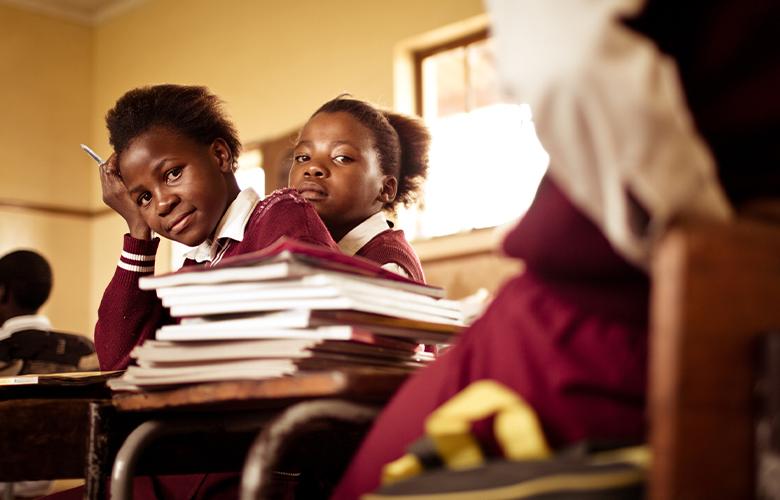
South African women and girls experience unacceptably high levels of gender-based violence that remain largely undocumented, unreported, and unaccounted for in the national statistics. And during the COVID-19 lockdown, the rate of sexual assault, abuse, and violence against girls and women has increased.
Gender-based violence (GBV) affects all age groups and genders—either as victims or perpetrators. Some of the violence done by students can be the result of witnessing GBV at home, in school, or in the community, which can normalize abuse.
Through the South Africa School-Based Sexuality and HIV Prevention Education activity, of which EDC is a partner, students receive lessons on GBV as early as grade 4 (age 10). Lessons are part of the school curriculum and cover topics including sexism, power and control, gender stereotyping, and violence. EDC builds awareness of GBV through campaigns such as 16 Days of Activism. The activity also links learners to health and psychosocial services.
One learner is Zinhle,* who was 17 years old, in ninth grade, and an orphan when she connected with our activity. She had been living with her grandmother until her grandmother’s passing. Then Zinhle’s sister relocated her to Gauteng when it was discovered that Zinhle’s uncle had been sexually abusing Zinhle since sixth grade. However, an argument with her sister left Zinhle homeless during lockdown. Not having any place to go, Zinhle took refuge with a 43-year-old man, but he required sexual favors in return for a place to stay. Zinhle left.
Homeless again, Zinhle sought refuge with a friend for a one-night accommodation, and the following day reported her situation to the activity’s life orientation educator. The educator reported the matter to EDC personnel, who contacted the Department of Social Development (DSD) for a social worker. Zinhle was provided with counselling, sexual and reproductive health services, and a safe place to live.
Such stories are not uncommon for activity staff. Due to the strong relationship between educators and EDC, educators report cases of GBV to EDC staff. EDC will refer learners to DSD, the Department of Health, or NGOs for assistance, such as the Teddy Bear Foundation. In severe cases, learners might be relocated to a place of safety or referred to Thuthuzela Care Centres.
Gender-based violence is a reality for too many women around the world. However, the fight to prevent and eliminate GBV grows stronger every day.
In recognition of the International Day for the Elimination of Violence against Women, please add your voice to end GBV. It takes all of us to create a safer, healthier world.
Lindiwe Mothemane is the technical program director of the PEPFAR-funded South Africa School- Based Sexuality and HIV Prevention Education activity. She supervises the technical team across the seven provinces where the activity is being implemented.
* The name is fictitious to protect this young woman’s privacy.
Comments
Add new comment